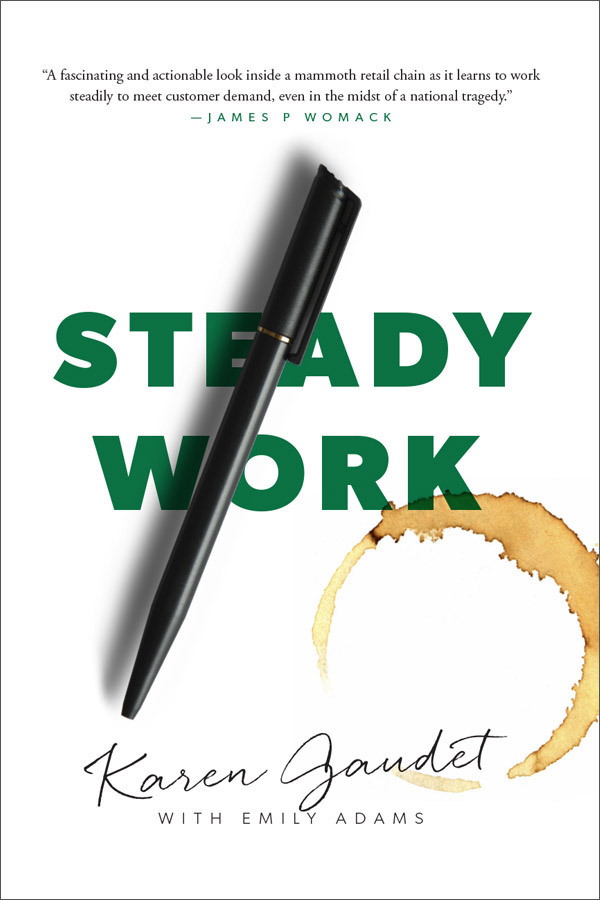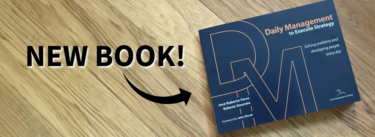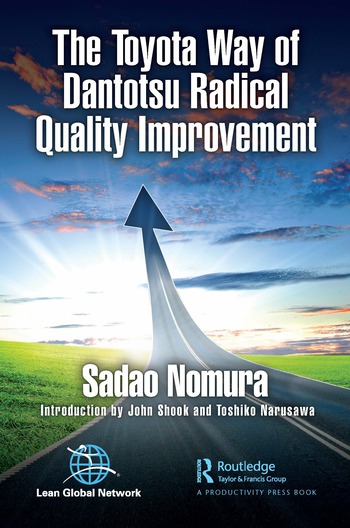What is the most important thing we need to discuss today?
What have you observed and what have you measured to understand the problem?
Asking effective questions is an art in and of itself. Of the many skills required of a leader through a lean transformation, to ask questions of others when you seek to understand a certain problem or situation can make or break the outcome. Not just the actual result but the sustainability of the result.
As a leader your performance is truly measured by how effectively you are able to work through others. Developing their capability to perform and think even better than you do. If you are unable to do this well it means long days and nights, reduced results, and heck, potentially a career of frustration and disappointment.
Have you ever heard yourself say “if they would just do things this way, we would be all set and not have this problem?”
For those who break through to the other side of how to take care with their questions, they experience freedom, results that surpass many, and often a greater velocity to transformation and sustainment of gains.
How can you increase the value you add into a problem-solving process by asking questions that enable the person who owns solving the actual problem, to interrogate the problem deeply and get to the source?
As a business leader at Starbucks leading the spread of our Lean Operating System, it was apparent to me early on that many leaders had gotten to the level of management they had based on the way they themselves muscled or forced a result. There was a long list of people who topped the charts on reports, and on a frequent and regular basis would be praised and recognized for their accomplishments in large and small public ways. Over time this reinforced the behaviors of telling people how and what to do. I myself experienced how this built my ego and an identity for myself.
Again and again, month over month if you are sought after to put up the best score on the board and you get that score by telling people what to do, what incentive is there to change the behavior of problem-solving and possibly asking a question?
I’m talking about a real question, an open question, not a question that is loaded with your opinion or approach. In my work of spreading the lean operating system to so many locations I often found leaders, like myself and managers, had not actually known the work in advance. The telling we had been doing to get the results was in service to trying to get others to do the work as we would have. Sometimes it was based on a complete assumption of what someone thought was happening vs actually knowing how the work was getting done. Honestly sometimes it was a simple expression of needing the result without caring how the actual work was done.
There is a fine difference between telling and directing. Sometimes depending on the newness or lack of capability of the other person or team members the situation requires you to be highly directive. It is entirely possibly to be highly directive in the “what” while remaining resolutely open to discovering the “how” if there is not a predetermined standard approach in place.
Asking questions in a way that invites a dialogue rather than enforcing compliance is a show of respect, and, I might be as bold as to say, a requirement of a Lean Leader.
We call it Lean Thinking and Practice. The operative words are Thinking and Practice. It seems obvious then when working to solve problems and understanding a current situation we would ask questions that evoke better Thinking. And by better, I mean better is not simply complying to my thinking but my team members better authentic thinking.
Thinking your way to the root cause of a problem additionally calls for us to take the journey likely less traveled. This takes courage and an ability to openly see all potential causes of a problem to simply want people to align to your opinion or approach assumes a narrow path or that there is one singular way to solve for the problem.
Whose problem is it to solve anyway? If it is your work than I guess you might argue that it is yours to do with you see fit. However, leaders are in the business of serving others. This means oftentimes you are in the process of facilitating problem solving of problems that reside in someone else’s work. If the problem lives in the work of another and it is not the work you do each and every day, are you truly the best person to actually know the solution?
We frequently represent the Five Whys of trying to get to the root cause of a problem. How can you as a leader improve on that and learn how to ask questions that demonstrate an authentic curiosity to learn more about something.
Asking questions in a way that invites a dialogue rather than enforcing compliance is a show of respect, and, I might be as bold as to say, a requirement of a Lean Leader.
How can you increase the value you add into a problem-solving process by asking questions that enable the person who owns solving the actual problem, to interrogate the problem deeply and get to the source?
How can you continue to build the Thinking in Lean Thinking by asking questions that prompt thinking?
If you have a strong opinion, based on experience, state the opinion and the reason why, then ask the authentic open question. Respect others thinking by asking them to think.
It has been through tough learning of not making progress or slipping back when spreading the Lean Operating system that helped me to learn the fine art of asking questions. I have found when others demonstrate an overdependence on me to give answers it is a signal that I am falling back into the old behavior of telling. When team members however come with a representation of the problem they have worked to a certain point and then ask me for input on a particular part of a problem I realize I am closer to being the type of Lean Leader I aspire to.
As a leader I hope to show deep respect for others by expecting them to think.
Take care with your questions.
This article is adapted from Karen’s new book Steady Work, which is available for sale in the LEI bookstore.







